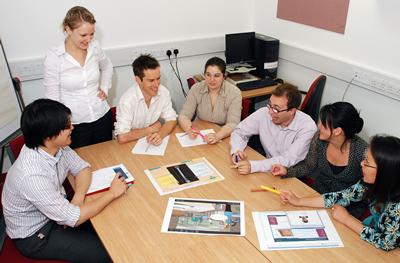Audiology students were all asked the same question:
Having done a placement, what would you say to someone who was beginning an Audiology placement for the first time?
Jennifer:
Just be diligent, get there on time. Don’t take a longer lunch hour. Be prepared. Don’t go into a clinic with somebody without having read the patient notes and you don’t know what you’re doing. Know what you’re going to be doing, know what you want – know what you want to do in the session.
Ask yourself which bit are you comfortable with having a go at? For me it was the ‘computer bits’. Work up from there. Then do the next bit. If you aren’t confident with something let your supervisor know. Ask them to check that you’re doing it right.
Amanda:
Don’t be afraid to ask. Any problems, anything you’re unsure of, just ask, question the other audiologists why they’re doing it, what’s going on. I think definitely just keep asking questions.
Be confident but don’t feel pressurised to have to do something because they think you should be able to do it. The first few months on placement I just saw myself as newbie, thinking, “Oh I can’t do that, I can’t do that.” But actually, if you do ask, you will eventually be able to do everything.
Sarah:
Go with it! It’s not going to stop while you sit and decide what to do next. I think just make sure you know your theory. Don’t judge clinicians for the decisions they make very early on. Because you have the potential, as a Uni student, to go, “Oh I wouldn’t have done it that way.” And you think, “But these people have had like 30 years’ experience, and generally the decision they make is better than the one you would make.” It’s a case of just learning from absorbing as much as possible from the people that you meet, and really thinking about how you can develop to give your patients have a better standard of care really.
Remember to make an effort with the all employees. Do not think some members of staff are ‘lesser’ just because they are non-medical. They are the first people that could get you out of a sticky situation and they’ll always go out of their way to help

Amy:
Always turn up for work on time; always iron your clothes Ha-ha!! Reassure yourself that it's OK to make mistakes, because you're still learning. Don't be too hard on yourself if you go home and feel like you haven't done something very well; there is plenty of time to improve. As long as you learn something it's not wasted time. And you haven't made a mistake, you've just learnt something. Remember that you can't kill anyone, no one dies!!
Rakesh:
Make the most of it. Always ask questions, even if you think they're stupid. Don't panic, that's the main thing I'd say. Because it's quite easy to panic when you have a 6'7", 15 stone giant shouting at you in a clinic because he's had a bad day. So don't end up sort of talking back to a patient, just calmly diffuse the situation in your own way that you feel comfortable diffusing it in. If that's going out and calling a superior, then do it that way. If you feel that you can diffuse the situation by yourself then do it that way.
Erin:
Enjoy it! Be proactive, that's the biggest thing. Take responsibility for your own learning because departments are busy places and they're used to students coming in and out and you can easily shy away. Have a look at yourself; ask yourself what you need to do, then make sure that you do it.
Try to get a good balance between learning and training, whilst also fitting into the department and being a useful member of staff while you're there. You're giving your services, and in return they help train you.
Other University of Southampton sites
Beyond Placement...
Range of typical starting salaries for trainee audiological scientists with BSc and postgraduate diploma: £21,176 - £27,534.
Range of salaries for clinical Audiology scientists at senior level/with experience: £38,851 - £97,478.
There is a current national shortage of audiological scientists.
Working hours are mainly nine to five, with some extra hours. Some departments employ 'extended working', operating on a four-day working week to cover demand for their services.
Many audiological scientists are employed by universities in a teaching and research capacity.